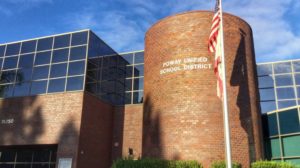Poll: 71% of Californians believe their children will be financially worse off
(The Center Square) – According to a new poll, 71% of Californians believe their children will be financially worse off than they are. These new numbers, from a poll conducted by the Public Policy…

(The Center Square) – According to a new poll, 71% of Californians believe their children will be financially worse off than they are. These new numbers, from a poll conducted by the Public Policy Institute of California, show a record number of Californians lack confidence in the state’s long-term trajectory.
“The news from the PPIC survey is not very encouraging, but, to me, it’s not very surprising either,” said State Sen. and Vice Chair of the Senate Budget Committee Roger Niello, R–Fair Oaks, in a statement sent to The Center Square. “The somewhat hidden but real message of these survey results is that California does a poor job of real economic development. Turning that around would improve our, and our kids’ futures.”
The poll also asked Californians about their support for the governor and whether or not they support the state’s current direction. Fifty-seven percent of polled adults said they believe the state is heading in the wrong direction, but nonetheless 51% say they support how California governor Gavin Newsom is handling economic issues. Sixty-four percent of adults said they believe the state will have “bad economic times in the next 12 months.”
To address worsening economic conditions, Californians support expansion of government programs, though with a $14 billion deficit, it’s unclear where this funding will come from.
“Most Californians favor increasing government funding for child care programs and the EITC,” Baldassare said. “Similarly, overwhelming majorities are in favor of increasing government funding for job training programs, including majorities across political parties.”
Raising the healthcare minimum wage to $25 per hour will already increase the state spending by an unexpected $4 billion next year, adding to the existing $14 billion figure and creating further pressure on state finances. With the state largely reliant on income taxes from high earning professionals and capital gains taxes from Silicon Valley IPOs, tax receipts are likely to come in significantly lower than expected, meaning the governor will face hard decisions in funding priorities for the coming fiscal year.



